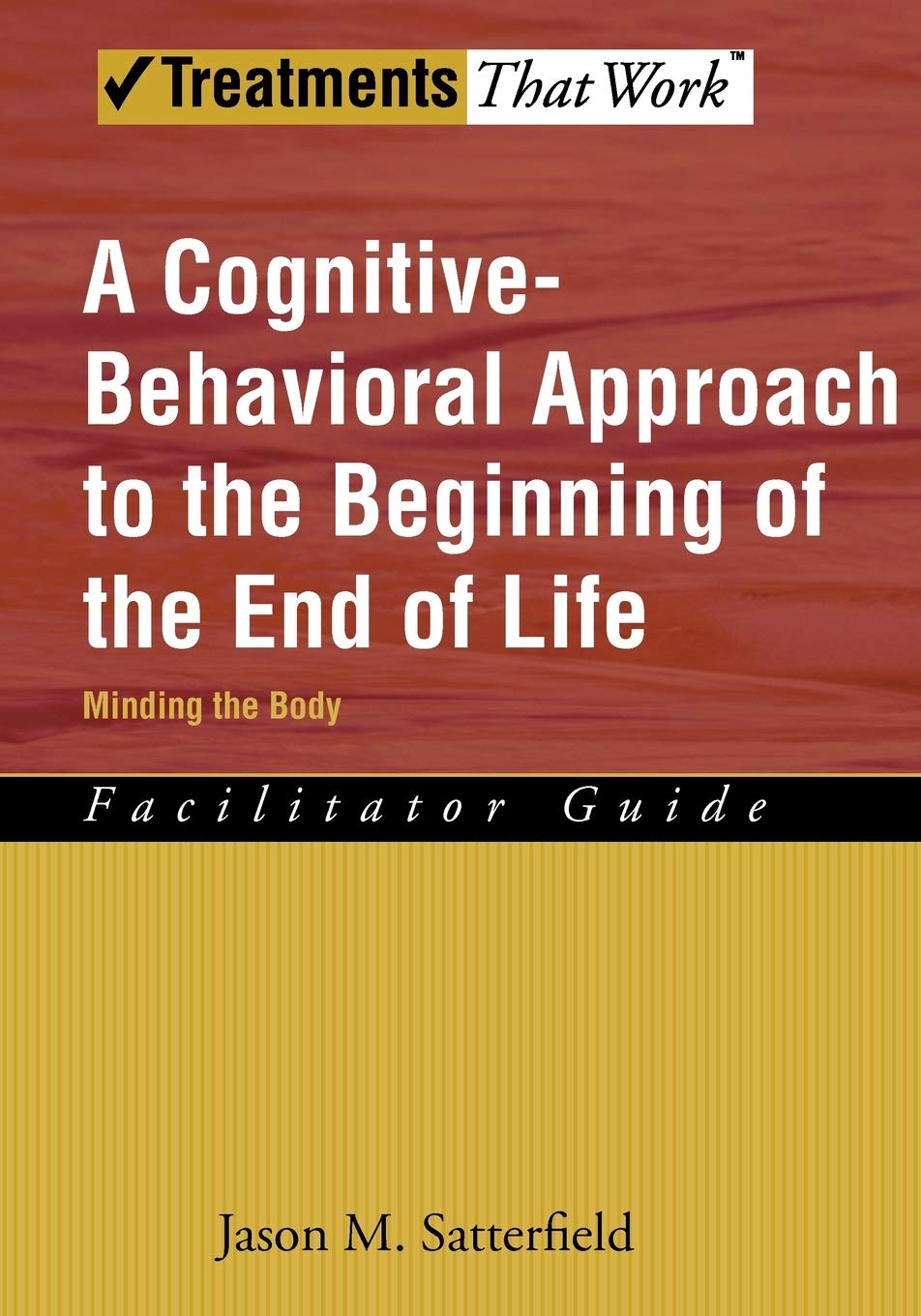
A Cognitive-Behavioral Approach to the Beginning of the End of Life
Editorial Reviews
Individuals with serious and incurable illnesses often require care that goes beyond the body. As they face the challenges of living with and eventually dying from their conditions, they may need to acquire new skills to cope and increase their quality of life. Even those at the beginning of the end of life can take an active role in their treatment.
This skill-based program emphasizes flexibility and should be tailored to individual clients. The first module introduces stress management techniques, including cognitive restructuring, relaxation, and problem-focused and emotion-focused coping. The second module targets mood management, with sessions on depression, anxiety, and anger. Social support is addressed in the third module where clients learn communication and conflict resolution skills. Special attention is paid to supporting caregivers and working with medical providers. The fourth module focuses on quality of life and covers symptom management, goal setting, positive psychology, and spiritual issues. An adaptation chapter details how to run the program as a group and discusses other possible formats.
Incorporating a wide variety of CBT techniques, this program can benefit patients suffering from a range of chronic and terminal diseases. The corresponding workbook helps clients personalize the content of sessions and practice new skills. The facilitator guide is invaluable to any mental health professional working in a medical or other palliative care setting.
About the Author(s)
Jason Satterfield
JASON M. SATTERFIELD is Professor of Clinical Medicine and Director of Behavioral Medicine in the Division of General Internal Medicine at the University of California San Francisco. He received his Ph.D. from the University of Pennsylvania in 1995 and completed...
Read MoreBack
